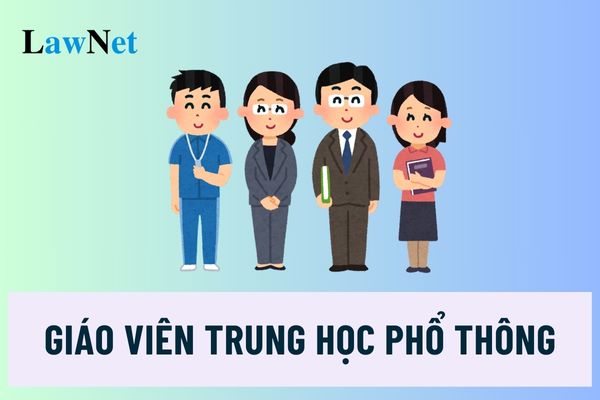Vietnam: What are the regulations on annual working period and breaks for upper secondary school teachers?
What are the regulations on the annual working period and breaks for upper secondary school teachers in Vietnam?
Under Article 5 of Circular 28/2009/TT-BGDDT amended and supplemented by Article 1 of Circular 15/2017/TT-BGDDT:
Annual working period and breaks
1. The working period for primary school teachers in an academic year are 42 weeks, including:
a) 35 weeks for teaching and educational activities as per the academic year time plan.
b) 05 weeks for learning, fostering, and enhancing professional skills.
c) 01 week for preparing for the new academic year.
d) 01 week for summarizing the academic year.
2. The working period for lower and upper secondary school teachers in an academic year are 42 weeks, including:
a) 37 weeks for teaching and educational activities as per the academic year time plan.
b) 03 weeks for learning, fostering, and enhancing professional skills.
c) 01 week for preparing for the new academic year.
d) 01 week for summarizing the academic year.
2a. The working period for teachers at pre-university schools are 42 weeks, including:
a) 28 weeks for teaching and educational activities as per the academic year plan;
b) 12 weeks for learning, fostering, professional development, document creation, scientific research, and other activities as per the academic year plan;
c) 01 week for preparing for the new academic year;
d) 01 week for summarizing the academic year.
3. The annual breaks for teachers includes summer vacation, Tet holidays, semester breaks, and other holidays. To be specific:
a) The annual summer vacation for teachers lasts 02 months (including annual leave as per the Labor Code) with full pay and allowances (if any);
b) Tet holidays and semester breaks shall follow the regulations of the Minister of Education and Training;
c) Other holidays shall follow the Labor Code.
Based on the academic year plan, scale, characteristics, and specific conditions of each school, the Principal should arrange annual breaks for teachers reasonably accordingly.
Thus, for upper secondary school teachers, the annual working period and breaks are specified as follows:
| Working period 42 weeks |
- 37 weeks for teaching and educational activities as per the academic year time plan. - 03 weeks for learning, fostering, and enhancing professional skills. - 01 week for preparing for the new academic year. - 01 week for summarizing the academic year. |
| Annual breaks |
- The annual summer vacation for teachers lasts 02 months (including annual leave as per the Labor Code 2019) - Tet holidays and semester breaks shall follow the regulations of the Minister of Education and Training; - Other holidays shall follow the Labor Code 2019. |

What are the regulations on annual working period and breaks for upper secondary school teachers in Vietnam? (Image from the Internet)
What are the qualifications for upper secondary school teachers in Vietnam?
Upper secondary school teachers must meet the following qualifications:
(1) Grade III upper secondary school teacher (Based on Clause 3 Article 3 of Circular 04/2021/TT-BGDDT, amended by Clause 2 Article 4 of Circular 08/2023/TT-BGDDT):
- Hold a bachelor's degree or higher in teacher training for upper secondary school teachers.
In cases where the subject does not have enough teachers with a bachelor's degree in teacher training, they must have a bachelor's degree in a relevant major and a certificate of pedagogical training for upper secondary school teachers as per the program issued by the Minister of Education and Training;
- Hold a fostering certificate according to the standards of the professional title of upper secondary school teachers.
(2) Grade II upper secondary school teacher (Based on Clause 3 Article 4 of Circular 04/2021/TT-BGDDT, amended by Clause 2 Article 4 of Circular 08/2023/TT-BGDDT):
- Hold a bachelor's degree or higher in teacher training for upper secondary school teachers.
In cases where the subject does not have enough teachers with a bachelor's degree in teacher training, they must have a bachelor's degree in a relevant major and a certificate of pedagogical training for upper secondary school teachers as per the program issued by the Minister of Education and Training;
- Hold a fostering certificate according to the standards of the professional title of upper secondary school teachers.
(3) Grade I upper secondary school teacher (Based on Clause 3 Article 5 of Circular 04/2021/TT-BGDDT, amended by Clause 2 Article 4 of Circular 08/2023/TT-BGDDT):
- Hold a master's degree or higher in teacher training for upper secondary school teachers or a master's degree or higher in a relevant major or a master's degree or higher in educational management;
- Hold a fostering certificate according to the standards of the professional title of upper secondary school teachers.
What are the professional ethics standards for upper secondary school teachers in Vietnam?
According to Article 2a of Circular 04/2021/TT-BGDDT, added by Article 4 of Circular 08/2023/TT-BGDDT, upper secondary school teachers must meet the following professional ethics standards:
- Adhere to the guidelines and policies of the Communist Party of Vietnam, laws of the State, and regulations of the education sector and local authorities regarding upper secondary school education.
- Regularly cultivate morals, uphold a sense of responsibility, maintain the teaching profession's dignity, honor, and reputation; be a role model for students.
- Love, treat fairly, and respect students; protect the legitimate rights and interests of students; unite and assist colleagues.
- Strictly follow the regulations on the responsibilities and general obligations of public employees and the regulations of the Ministry of Education and Training on teacher ethics.

